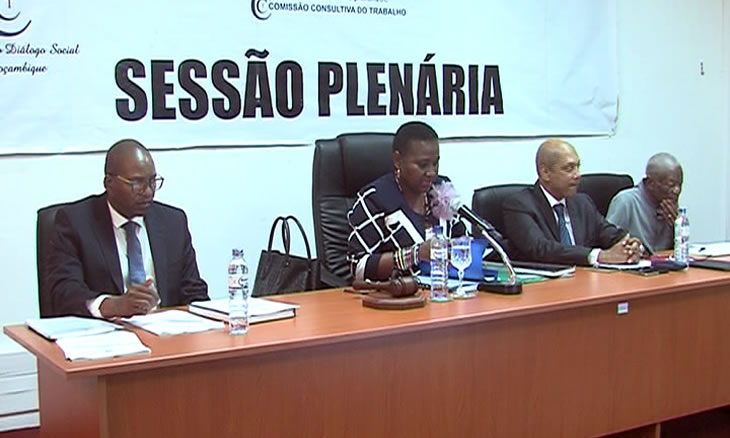Mozambique: Government holds public consultation on creation of the General Inspectorate of the ...
Mozambican minimum wage far from giving dignity to workers and families- OTM-CS

Photo: O País
The Mozambican Workers’ Organisation (OTM-Central Sindical) once again reiterated that households’ purchasing power has deteriorated over the years as a result of the disparity between the wage increase and the rising cost of living, further emphasising that when workers fight for the better pay, they are mainly seeking dignity for their families rather than big salaries.
According to OTM-CS representative Damião Simango, the cost of living is very high and the majority of workers are not in a position to endure it, since their incomes are very low.
“The rules are already defined and well known by all,” so negotiations should not be against the interests of the workforce, nor “an opportunity for demonstration of bad intentions,” he said.
Simango was speaking in Maputo on Thursday at the beginning of a session of the Consultative Committee of Labour (CCT), a platform that brings together the government, trade unions and the Confederation of Economic Associations of Mozambique (CTA).
The new minimum wages by sector of activity are announced in April every year, as the outcome of the negotiations between the parties.
Simango emphasised that the discussion to fix new minimum wages comes at a time when the country is calculating the economic-social balance of 2018, seeking to staunch the prevalence of attacks in Cabo Delgado, managing the situation of illegal debts and the respective lawsuits, as well as “natural and cyclical calamities, the cost of living and the rising unemployment rate”.
He called for the revision of Law no. 23/2007 of 1 August (the Labour Law), which began last year, allowing for a neutral, exemplary, clear and comprehensive document. “We want a law that, in fact, regulates labour relations and promotes labour productivity and legality.”
The president of the CTA’s Political Labour and Social Action department, António Sousa, complained that the minimum wage negotiations were starting before the macroeconomic data and the Economic and Social Plan (PES) of 2018 had been consolidated. The government, he made known, had only made available a summary of the PES for three quarters (until September) of the previous year.
Without information for the whole year it would be difficult to “avoid the disparities that occur in other years and that make it difficult to discuss” the readjustment of the minimum wage in the country.
In 2018, the companies were heavily affected by inflation and difficulties acquiring materials for production, as well as exponential increase in the cost of energy, fuel and water – indispensable resources for companies.
According to Naftal Simbine, a spokesperson for the Confederation of Independent and Free Trade Unions of Mozambique (CONSILMO), the CCT should adopt joint mechanisms on the future of workers.
He appealed for everything that was discussed about and for the workforce to take into account the “real Mozambique”.
In turn, the Minister of Labour, Employment and Social Security (MITESS), Vitória Diogo, called for minimum wage negotiations “to proceed with responsibility, serenity, discretion and good faith”.
She said that this year’s CCT coincides with the end of the current Executive’s term of office and the deepening of administrative decentralisation, which poses challenges to social dialogue.
Diogo further said that the matter of wages was “delicate, or even sacred,” because “it concerns the lives of thousands of workers”.
By Emildo Sambo












Leave a Reply
Be the First to Comment!
You must be logged in to post a comment.
You must be logged in to post a comment.